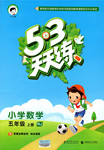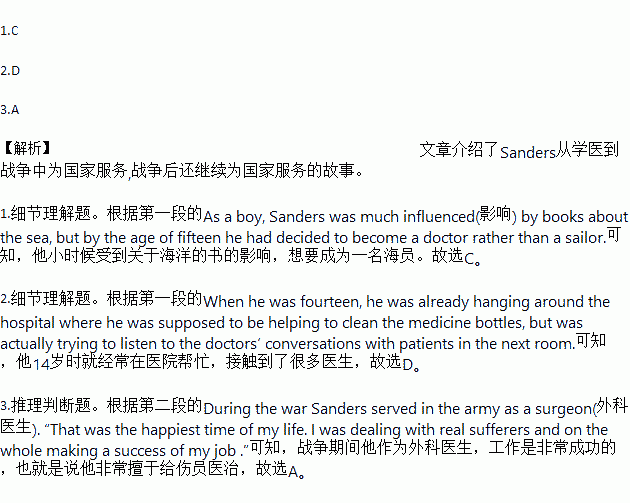题目内容
As a boy, Sanders was much influenced(影响) by books about the sea, but by the age of fifteen he had decided to become a doctor rather than a sailor. His father was a doctor. So he was often with the doctors and got along very well with them. When he was fourteen, he was already hanging around the hospital where he was supposed to be helping to clean the medicine bottles, but was actually trying to listen to the doctors’ conversations with patients in the next room.
During the war Sanders served in the army as a surgeon(外科医生). “That was the happiest time of my life. I was dealing with real sufferers and on the whole making a success of my job.” In Rhodes he taught the country people simple facts about medicine. He saw himself as a life-saver. He had proved his skill to himself and had a firm belief that he could serve those who lived simply, and were dependent upon him. Thus, while in a position to tell them what to do he could feel he was serving them.
After the war, he married and set up a practice deep in the English countryside, working under an old doctor who hated the sight of blood. This gave the younger man plenty of opportunity(机会) to go on working as a life-saver.
1.When he was a small boy, books about the sea had made Sanders want to be ___.
A. a surgeon B. an army man
C. a sailor D. a life-saver
2.At the age of 14, Sanders ___.
A. worked as a doctor by cleaning the medicine bottles
B. met some doctors who were very friendly to him
C. was interested in talking with patients
D. remained together with the doctors
3.His experience in the Army proved that ___.
A. he was good at medical operations on the wounded
B. he succeeded in teaching people how to save their lives themselves
C. a doctor was the happiest man
D. his wish of being a life-saver could hardly come true
 53天天练系列答案
53天天练系列答案
